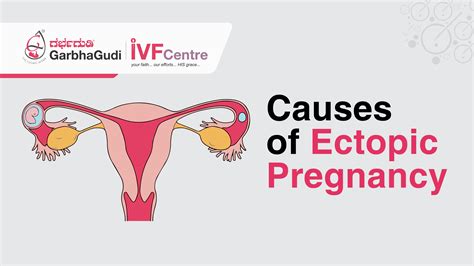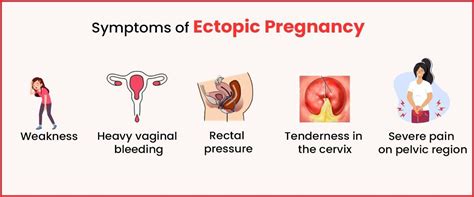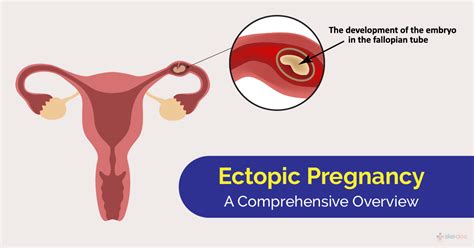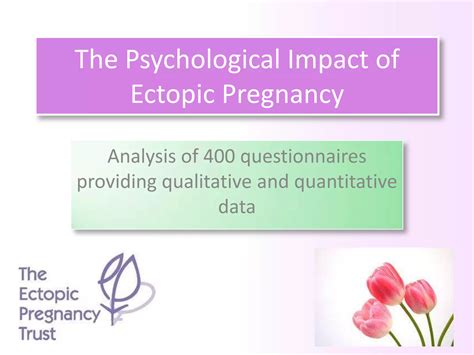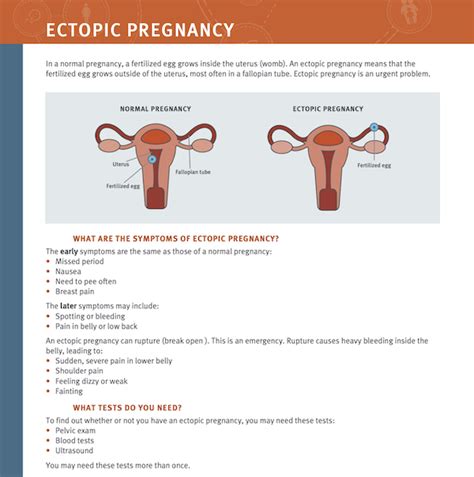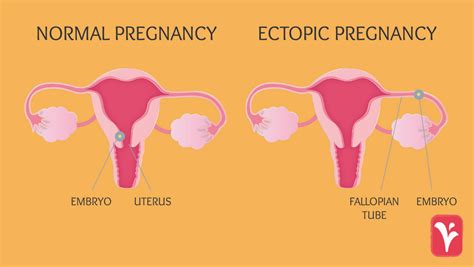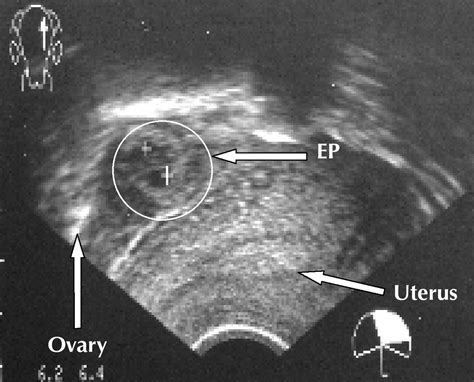Ectopic gestation, also known as ectopic pregnancy, is a serious and potentially life-threatening condition that occurs when a fertilized egg implants outside the uterus. This can happen in various locations, such as the fallopian tubes, ovaries, or abdominal cavity. Ectopic gestation is a major concern for women of childbearing age, and it is essential to understand the risks, symptoms, and treatment options available. In this article, we will delve into the world of ectopic gestation, exploring its causes, diagnosis, and management, as well as the emotional and psychological impact it can have on individuals and families.
The importance of understanding ectopic gestation cannot be overstated. According to the American Pregnancy Association, ectopic pregnancy is responsible for approximately 4% of all pregnancy-related deaths in the United States. Furthermore, the risk of ectopic gestation is higher in women who have had previous ectopic pregnancies, pelvic surgery, or infertility treatments. It is crucial for women to be aware of the warning signs and seek medical attention immediately if they experience any symptoms. By doing so, they can reduce the risk of complications and ensure the best possible outcome.
Ectopic gestation can be a traumatic experience for women and their families. The emotional and psychological impact of an ectopic pregnancy can be significant, and it is essential to address these concerns. Women who have experienced an ectopic pregnancy may feel a range of emotions, including grief, guilt, and anxiety. It is vital to provide emotional support and counseling to help them cope with their feelings and move forward. In addition, it is essential to educate women about the risks and symptoms of ectopic gestation, as well as the treatment options available, to empower them to take control of their reproductive health.
Ectopic Gestation Causes and Risk Factors
Ectopic gestation occurs when a fertilized egg implants outside the uterus, usually in the fallopian tubes. The exact cause of ectopic gestation is often unknown, but several risk factors can increase the likelihood of an ectopic pregnancy. These risk factors include:
* Previous ectopic pregnancy
* Pelvic surgery or infection
* Infertility treatments
* Smoking
* Tubal ligation or tubal reversal
* Intrauterine device (IUD) use
* History of endometriosis or pelvic inflammatory disease (PID)
Understanding the causes and risk factors of ectopic gestation is crucial for prevention and early detection. Women who are at high risk of ectopic gestation should be closely monitored during pregnancy, and any symptoms should be reported to their healthcare provider immediately.
Ectopic Gestation Symptoms and Diagnosis
The symptoms of ectopic gestation can vary, but common signs include:
* Abdominal pain or tenderness
* Vaginal bleeding or spotting
* Shoulder pain or discomfort
* Nausea and vomiting
* Dizziness or fainting
* Abnormal vaginal discharge
Diagnosing ectopic gestation can be challenging, but several tests and procedures can help confirm the diagnosis. These include:
* Pelvic exam
* Ultrasound
* Blood tests (hCG and progesterone levels)
* Laparoscopy
Early diagnosis is critical for effective treatment and preventing complications. Women who experience any symptoms of ectopic gestation should seek medical attention immediately.
Ectopic Gestation Treatment Options
The treatment options for ectopic gestation depend on the severity of the condition and the individual's overall health. Treatment options may include:
* Expectant management (monitoring the pregnancy and waiting for the body to absorb the embryo)
* Medical management (using medication to stop the growth of the embryo)
* Surgical management (removing the embryo and repairing any damage to the fallopian tube)
* Laparoscopic surgery (minimally invasive surgery to remove the embryo and repair the fallopian tube)
The choice of treatment depends on various factors, including the size and location of the embryo, the woman's overall health, and her reproductive goals. It is essential to discuss the treatment options with a healthcare provider to determine the best course of action.
Ectopic Gestation Complications and Prevention
Ectopic gestation can lead to serious complications, including:
* Rupture of the fallopian tube
* Hemorrhage
* Infection
* Infertility
* Ectopic gestation in future pregnancies
Preventing ectopic gestation is crucial, and several measures can be taken to reduce the risk. These include:
* Practicing safe sex
* Avoiding smoking
* Maintaining a healthy weight
* Managing underlying medical conditions (such as endometriosis or PID)
* Seeking medical attention immediately if symptoms occur
Ectopic Gestation Emotional and Psychological Impact
Ectopic gestation can have a significant emotional and psychological impact on women and their families. The experience can be traumatic, and it is essential to provide emotional support and counseling to help individuals cope with their feelings. Common emotional responses to ectopic gestation include:
* Grief and loss
* Guilt and shame
* Anxiety and fear
* Depression
* Anger and frustration
It is vital to address these emotional concerns and provide a supportive environment for individuals to process their feelings and move forward.
Ectopic Gestation Support and Resources
There are various support and resources available for individuals affected by ectopic gestation. These include:
* Online support groups and forums
* Counseling and therapy
* Support hotlines and helplines
* Educational resources and websites
* Local support groups and organizations
It is essential to reach out to these resources and seek help when needed. Ectopic gestation can be a challenging experience, but with the right support and care, individuals can navigate the emotional and psychological impact and move forward.
Ectopic Gestation Future Pregnancy Options
After an ectopic gestation, women may be concerned about their future pregnancy options. While the risk of another ectopic pregnancy is higher, many women can still conceive and carry a healthy pregnancy to term. It is essential to discuss future pregnancy options with a healthcare provider, who can provide guidance and support. Women who have experienced an ectopic gestation may need to:
* Wait for a certain period before trying to conceive again
* Undergo fertility testing and treatment
* Consider alternative reproductive options (such as surrogacy or adoption)
* Receive close monitoring during future pregnancies
Ectopic Gestation Conclusion and Next Steps
In conclusion, ectopic gestation is a serious and potentially life-threatening condition that requires immediate medical attention. Understanding the causes, symptoms, and treatment options is crucial for preventing complications and ensuring the best possible outcome. Women who have experienced an ectopic gestation should seek emotional support and counseling to cope with their feelings and move forward. By providing education, resources, and support, we can empower women to take control of their reproductive health and make informed decisions about their future pregnancy options.
We invite you to share your thoughts and experiences with ectopic gestation in the comments below. If you or someone you know has been affected by ectopic gestation, please reach out to a healthcare provider or support organization for guidance and care. Together, we can raise awareness and promote education about ectopic gestation, ultimately reducing the risk of complications and improving reproductive health outcomes.
What is ectopic gestation?
+
Ectopic gestation, also known as ectopic pregnancy, is a condition where a fertilized egg implants outside the uterus, usually in the fallopian tubes.
What are the symptoms of ectopic gestation?
+
The symptoms of ectopic gestation can include abdominal pain or tenderness, vaginal bleeding or spotting, shoulder pain or discomfort, nausea and vomiting, dizziness or fainting, and abnormal vaginal discharge.
How is ectopic gestation diagnosed?
+
Ectopic gestation can be diagnosed through a combination of tests and procedures, including pelvic exam, ultrasound, blood tests (hCG and progesterone levels), and laparoscopy.
What are the treatment options for ectopic gestation?
+
The treatment options for ectopic gestation depend on the severity of the condition and the individual's overall health, and may include expectant management, medical management, surgical management, or laparoscopic surgery.
Can I get pregnant again after an ectopic gestation?
+
Yes, many women can still conceive and carry a healthy pregnancy to term after an ectopic gestation. However, the risk of another ectopic pregnancy is higher, and women should discuss their future pregnancy options with a healthcare provider.
